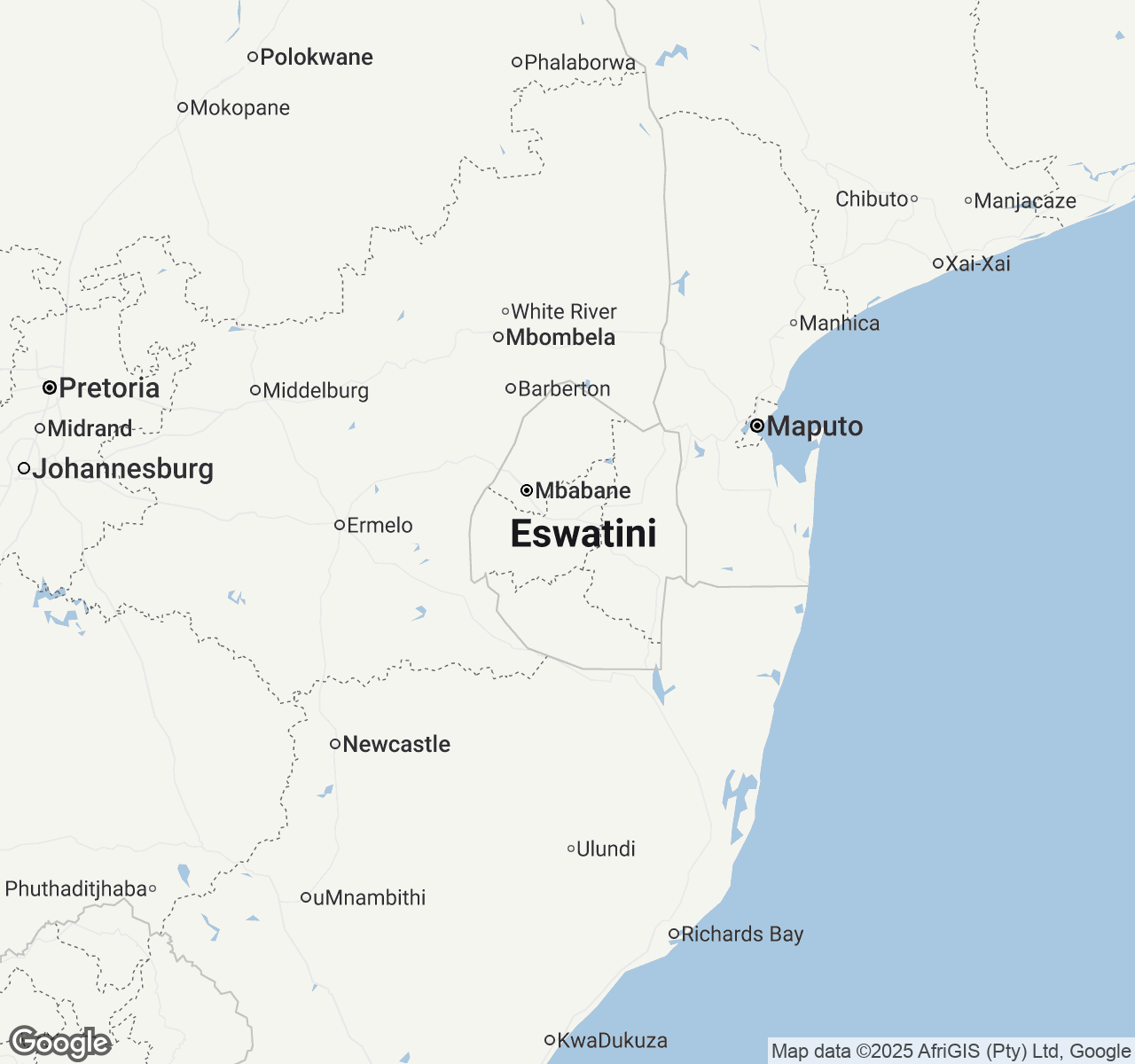
Things to Do in Eswatini
Discover the best of Eswatini
Plan Your Trip
Essential guides for timing and budgeting
Top Things to Do in Eswatini
Discover the best activities and experiences. Book now with our trusted partners and enjoy hassle-free adventures.
Explore Eswatini
Ezulwini Valley
City
Hawane Nature Reserve
City
Hlane Royal National Park
City
Lobamba
City
Maguga Dam
City
Malolotja Nature Reserve
City
Mantenga Cultural Village
City
Manzini
City
Mbabane
City
Mkhaya Game Reserve
City
Mlilwane Wildlife Sanctuary
City
Ngwenya Glass Village
City
Piggs Peak
City
Sibebe Rock
City
Your Guide to Eswatini
About Eswatini
Where Africa's heart beats strongest, Eswatini unfolds as a kingdom where time moves to the rhythm of ancient ceremonies and modern aspirations dance together under endless skies. This landlocked jewel, cradled between South Africa and Mozambique, pulses with the authentic spirit of the Swazi people, whose traditions have weathered centuries yet remain vibrantly alive. Here, sacred mountains guard royal valleys where reed ceremonies honor age-old customs, while wildlife roams freely through pristine reserves untouched by mass tourism. The air carries whispers of legends in royal kraals, the sweetness of sugar cane fields, and the distant thunder of waterfalls cascading through emerald highlands. In Eswatini, every sunrise reveals a land where genuine smiles are currency, where handcrafted beauty emerges from skilled artisan hands, and where the warmth of Ubuntu philosophy embraces every visitor as family. This is Africa's last absolute monarchy, yet it feels refreshingly intimate—a place where authentic cultural encounters aren't staged performances but genuine glimpses into a living heritage that continues to shape daily life with grace and dignity.
Travel Tips
Transportation: Rent a car with 4WD for mountain areas and remote attractions. Most roads are paved but can be steep. Public kombis (shared minibuses) connect major towns affordably but aren't tourist-friendly for luggage or schedules.
Money: Use South African Rand (accepted everywhere) or Eswatini Lilangeni at 1:1 exchange rate. ATMs are limited outside Mbabane/Manzini. Bring cash for markets, crafts, and rural areas where cards aren't accepted.
Cultural Respect: Always ask permission before photographing people. Dress modestly, especially at cultural sites and royal residences. Remove hats when greeting elders and use both hands when receiving gifts or business cards.
Food Safety: Tap water is generally safe in urban areas but stick to bottled water in rural regions. Try local specialties like boerewors and mealie pap at established restaurants. Avoid street food unless freshly cooked and hot.
When to Visit
Eswatini's subtropical climate offers distinct seasonal experiences, with May through September providing ideal conditions. Winter months (May-August) feature crisp, sunny days averaging 20-23°C and cool nights around 5-10°C, perfect for wildlife viewing and hiking with minimal rainfall (10-30mm monthly). This peak season sees accommodation prices increase 30-40% and advance booking essential. Spring (September-November) brings warming temperatures of 25-28°C and spectacular wildflower blooms, with moderate pricing and fewer crowds. Summer (December-March) delivers hot, humid conditions reaching 28-32°C and substantial rainfall (100-150mm monthly), creating lush landscapes but challenging road conditions. Budget travelers benefit from 20-30% lower rates during this off-peak period. Plan around major cultural events: the vibrant Umhlanga Reed Dance (late August/early September) celebrates young women and attracts international visitors, while the sacred Incwala ceremony (December/January dates vary) honors the king and harvest season. March-April offers shoulder season advantages with pleasant temperatures around 24-26°C, reduced rainfall, and moderate pricing. Wildlife enthusiasts should visit during dry winter months when animals congregate around water sources. Cultural immersion seekers will find authentic experiences year-round, though ceremony seasons provide extraordinary insights into Swazi traditions and royal customs.

Eswatini location map